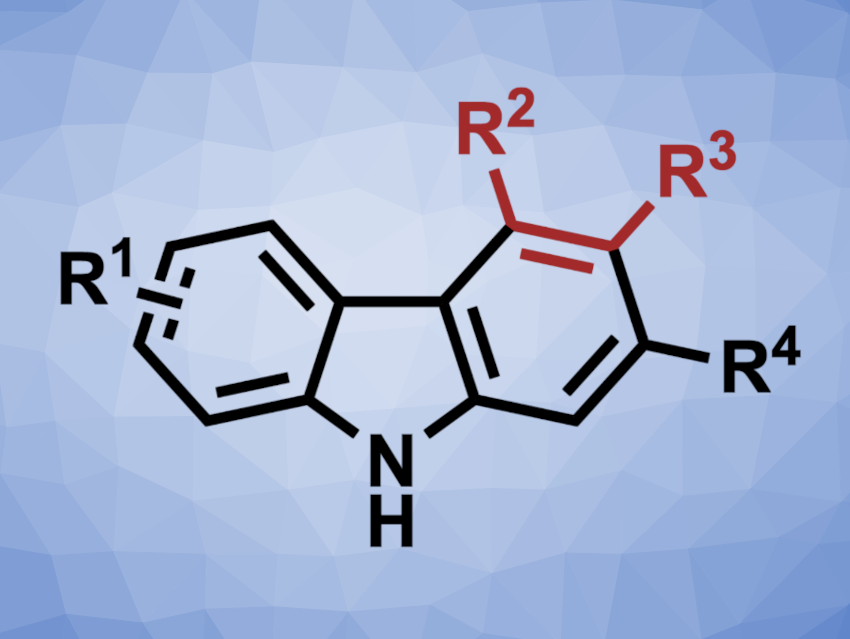Carbazoles are tricyclic aromatic compounds with a central five-membered nitrogen-containing ring fused to two benzene rings. They are found, e.g., in natural products and can have useful optoelectronic properties. Methods for the preparation of carbazole derivatives are, thus, interesting targets for research in organic chemistry.
Youliang Wang, Xi’an Jiaotong University (XJTU), China, and colleagues have developed a benzannulation of 2-alkenylindoles with alkynes via a gold-catalyzed hydroarylation to obtain carbazoles. The team reacted a variety of 2-alkenylindoles with different terminal (hetero)aryl alkynes, as well as other reaction partners such as amine-functionalized alkynes or some internal alkynes. The team used IPrAuNTf2 (a gold(I) complex with a 1,3-bis(2,6-diisopropylphenyl)imidazol-2-ylidene carbene ligand and a bis(trifluoromethanesulfonyl)imide ligand) as the catalyst and toluene as the solvent. The reactions were performed using a two-stage heating approach, first at 90 °C and then at 130 °C.
Under these conditions, the researchers obtained the desired carbazole derivatives in good to excellent yields. The reaction proceeds via an alkyne hydroarylation step followed by a 6π-electrocyclization/aromatization that is promoted by the higher reaction temperature. The products can be further functionalized to provide access to a wide variety of carbazole-based compounds.
- Gold-catalyzed benzannulations of 2-alkenylindoles with alkynes: a protecting-group-free regioselective approach to carbazoles,
Pathan Mosim Amin, Weilin Wang, Chao Wang, Junrui Zhou, Youliang Wang,
Chem. Commun. 2024.
https://doi.org/10.1039/D4CC00176A




